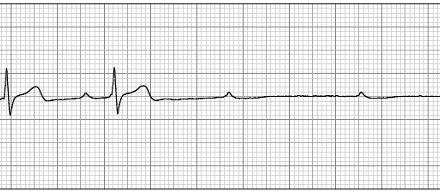Jazz Pharmaceuticals plc will present 14 abstracts at World Sleep 2023 Congress that underscore the increased need for awareness around cardiovascular and cardiometabolic comorbidities and modifiable risk factors associated with sleep disorders like narcolepsy and idiopathic hypersomnia.
Jazz will present two oral presentations, which include findings from the real-world TENOR study, demonstrating individualized dosing strategies for twice-nightly oxybate treatment in narcolepsy.
In addition, findings from the CV-RHYTHM study will be presented at the meeting, which found that patients with idiopathic hypersomnia experienced a significantly higher prevalence of cardiovascular comorbidities, including stroke, heart attacks, and heart failure than those without this underrecognized sleep disorder.
“Findings from the CV-RHYTHM study emphasize the importance of a holistic management plan and play an important role in providing insights to clinicians on how to approach treating sleep disorders, like idiopathic hypersomnia,” says Logan Schneider, MD, clinical assistant professor (affiliated) of sleep medicine at Stanford Sleep Center and consultant neurologist at Stanford/VA Alzheimer’s Center, in a release. “Based on administrative claims data and consistent with observational studies in patients diagnosed with narcolepsy, the study found that compared to patients without idiopathic hypersomnia, patients with the condition are more likely to experience cardiovascular comorbidities, including cardiovascular disease, stroke, heart attacks, and heart failure.”
Highlights at World Sleep 2023 include:
- An exploratory, post-hoc analysis from two phase 3 trials of low-sodium Xywav (calcium, magnesium, potassium, and sodium oxybates) oral solution in narcolepsy and idiopathic hypersomnia that examined changes in blood pressure among patients previously naïve to oxybate therapy, finding that there were no clinically meaningful differences from baseline in systolic blood pressure in those treated with Xywav during the open-label study periods.
- A systematic review of literature evaluating the relationship between sodium intake and clinical outcomes that demonstrated statistically significant associations between sodium intake and cardiovascular and cardiometabolic outcomes, as well as cardiorenal conditions and certain cancers.
- An analysis of patient preferences and experiences during transition from high-sodium Xyrem (sodium oxybate) oral solution to low-sodium Xywav in adult narcolepsy patients from the real-world TENOR study and interventional SEGUE study, where most patients reported that the switch was easy, with minimal modifications to their dosing regimen, and that they preferred Xywav over Xyrem, primarily due to its lower sodium content.
“These presentations continue to build on our body of research demonstrating the clear relationship between sleep disorders and increased cardiovascular risk, as well as the meaningful improvements possible with treatment plans that consider a patient’s holistic health, such as reducing sodium intake,” says Rob Iannone, MD, MSCE, executive vice president and global head of research and development of Jazz Pharmaceuticals, in a release. “We have a deep commitment to expanding our understanding of sleep disorders so that we can better support patients living with limited treatment options. The findings from these studies inform our growing R&D pipeline which we hope will deliver the next generation of transformative medicines to patients in need.”
The World Sleep 2023 schedule is available online and outlines all abstracts, posters, and oral presentations slated to be shared at the congress. All abstracts are published in a supplemental issue of Sleep Medicine, the official journal of World Sleep Society, two months after the event.
Photo 92284219 © Ronstik | Dreamstime.com




